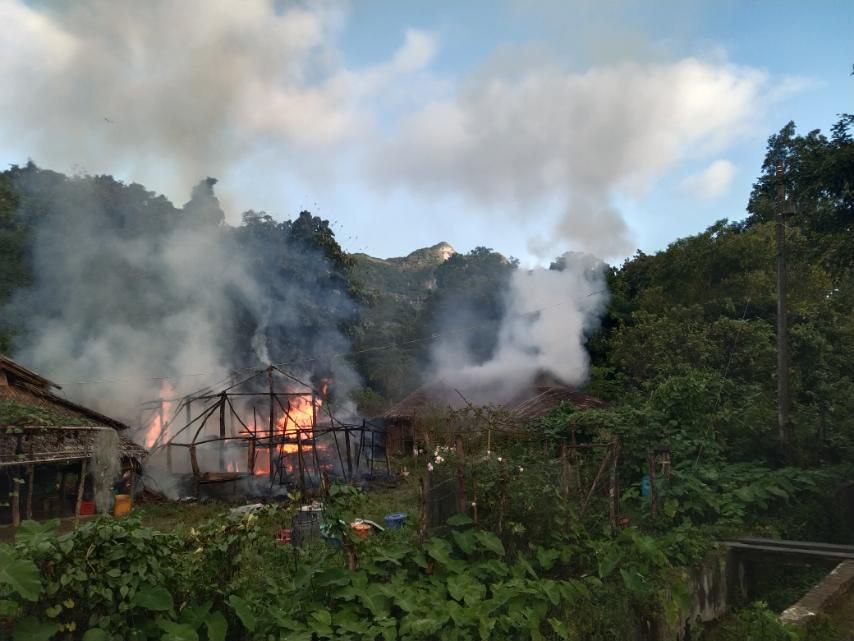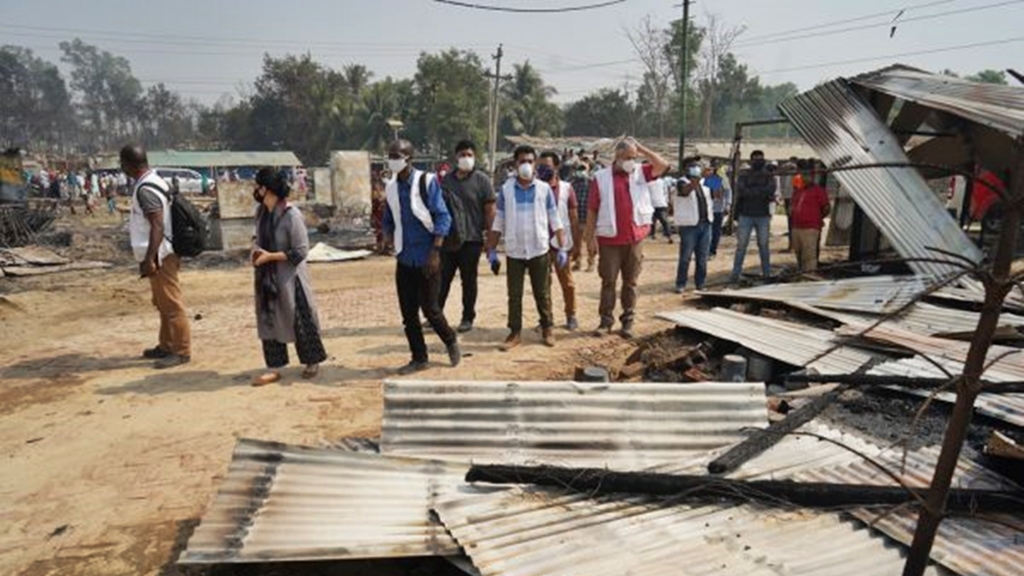Patients not politics in Rakhine State
- 09/11/2013
- 0
By Peter-Paul de Groote | Myanmar Times
November 9, 2013
On November 2, more violence broke out in Rakhine State. Two clashes between Muslim internally displaced people (IDPs) and Rakhine Buddhists resulted in the immediate deaths of two people. Five required hospitalisation, of whom two sustained injuries that were so severe that they later died.
After receiving a phone call from camp leaders, and with permission from the Rakhine State health authorities, Médecins Sans Frontières (MSF) transferred the three injured IDPs to hospital. MSF heard later about the second incident and that two injured Rakhine persons had been transported to hospital in Sittwe on a boat organised by their community.
No one contacted MSF for support with this hospital referral – neither community leaders nor the local health authorities. Had MSF been contacted, we would have been ready to provide immediate support, as we have done frequently in the past.
MSF has subsequently in media reports and social media been accused of “bias” in favour of Muslim patients. Such accusations politicise the act of providing life-saving healthcare in Rakhine State – something MSF provides in more than 60 countries around the world.
MSF works in Rakhine State at the request of the government to provide healthcare to communities that the Ministry of Health finds difficult to reach. These challenges are largely a result of the intimidation and hostility that is directed towards their own staff, who are threatened when they try to provide services to Muslim patients.
Put simply, Ministry of Health staff face retaliation should they dare to try to provide healthcare to Muslim communities. Such threats undermine the very act of providing even basic health care in Rakhine State.
MSF provides services to communities cut off from health care, including those who are currently limited to their camps or villages due to movement restrictions. We also support nearby communities, where residents may have freedom of movement but suffer due to tension and fear. We transport patients to hospital in the absence of a government-provided ambulance. However, if there is no clinic operating in an area at the time of a medical emergency, MSF relies on community leaders and local health authorities to contact us.
This service is open to anybody that needs to be urgently transferred to hospital, regardless of ethnicity, religion or any other factor. According to universal medical ethics and humanitarian principles, which guide the work of organisations such as MSF, we consider only the needs of a patient when providing our services.
Aid organisations in Rakhine have worked in close collaboration with the government over the past year and half to provide humanitarian assistance where it is needed most. The provision of this assistance is foremost the responsibility of the government but to fulfil this obligation help has been requested from the international community.
Following the violence on November 2, some figures within the government have reiterated a position that humanitarian assistance in Rakhine should be distributed on an equal basis because needs are the same across all communities.
Such statements demonstrate a profound lack of understanding of the principles by which humanitarian organisations are bound to operate – most notably that of impartiality, which requires that humanitarian assistance be provided where it is needed most and without discrimination.
The government has a responsibility to ensure that all communities in Rakhine State, regardless of their status, have access to basic services. But to describe the medical and humanitarian needs as the same between communities is a misleading representation of the situation.
All communities in Rakhine have needs but those needs are very different.
Muslim communities have been cut-off off from fields, markets and government-provided services, with the exception of emergency health services at Sittwe General Hospital. Many of them are displaced, restricted to squalid camps situated on salt flats and rice paddies.
To access emergency health-services in Sittwe General Hospital, every patient transfer has to be individually authorised by health and security officials and facilitated by an international organisation. No one else is willing to transport these patients.
This situation has generated significant humanitarian needs among Muslim communities, who suffer from inadequate shelter and latrine provision, shortages in drinking water supplies and intermittent health services. These factors result in avoidable deaths and an increased likelihood of epidemic outbreaks.
Rakhine communities have also have had their lives disrupted by violence and the tension and fear that has followed but have not been restricted in their movements. They have a greater ability to access fields, markets and government services.
But Rakhine is one of the poorest states in Myanmar and rural communities in particular remain extremely impoverished, with increasing concerns over food insecurity due to the disruptions in agriculture, trade and the local economy. Rakhine communities have access to government health facilities but these remain under-resourced and under-staffed, with no ambulance service. All communities in the state need substantial development support to help them overcome decades of neglect and marginalisation at the hands of the former military regime.
The central government has requested support from international organisations in the form of both humanitarian and development assistance, including health care. With this request the authorities also have a responsibility to explain to communities the role of these organisations. It should support, rather than politicise, the principles which guide our work.
If providing medical care can ever be referred to as “biased”, it is a bias toward patients. It is a bias that is based on medical need, regardless of any other factor. MSF sees only patients, nothing else. That is and always has been our organisation’s key underlying principle and is one of the reasons why we have been able to work in some of the most challenging places in the world, providing health care to people who really need it, for more than 40 years.
MSF calls on the government and the communities of Rakhine to work together with international organisations to ensure that all patients in need of access to emergency medical services get the transport and care that they need, regardless of their background.
Peter-Paul de Groote is the head of mission for Médecins Sans Frontières in Myanmar.







